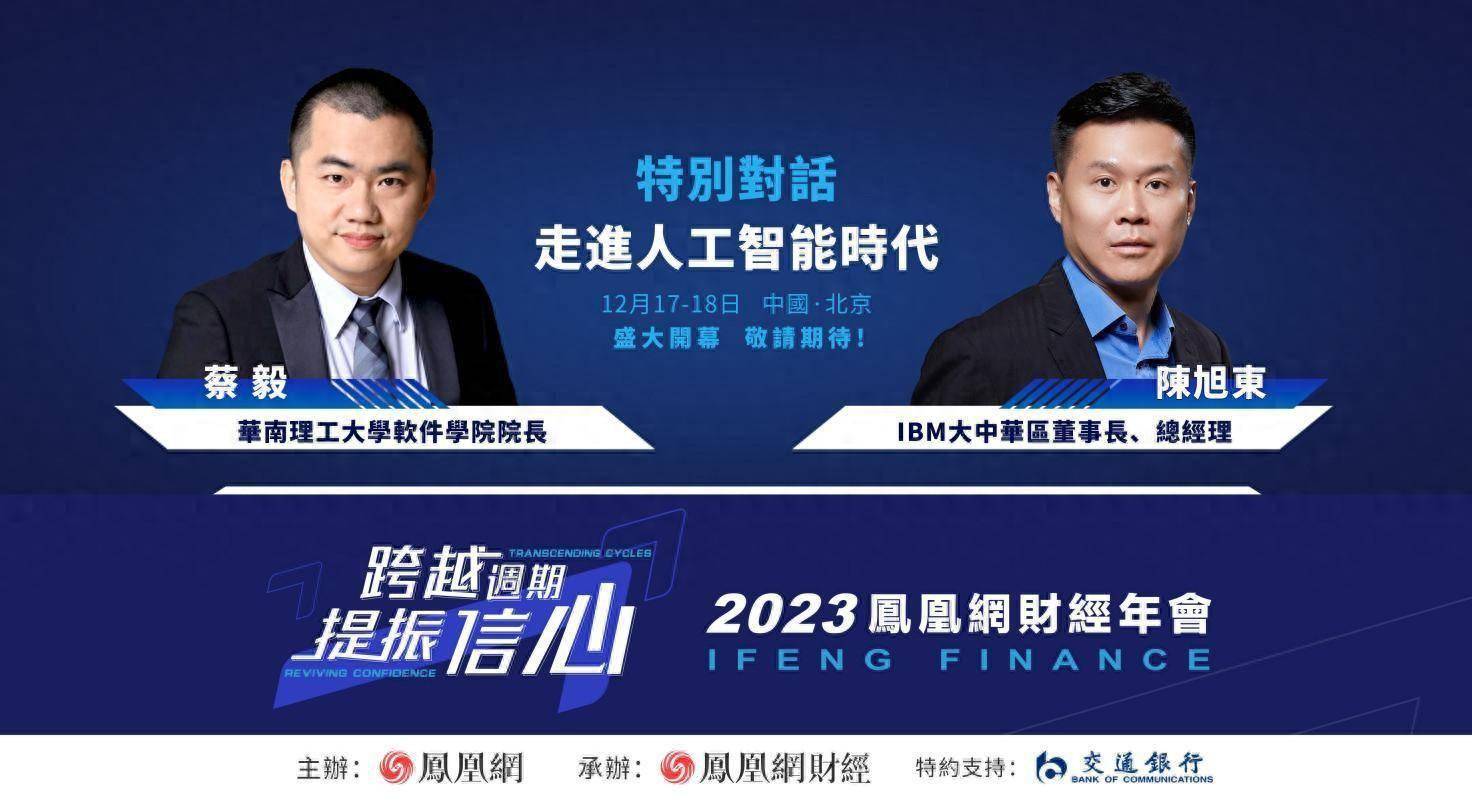
Cai Yi said that with the birth of large models, liberal arts students also have the opportunity to participate in the development of artificial intelligence applications
Ifeng.com Financial News, the 2023 Ifeng.com Financial Annual Conference will be held on December 17-18. The theme of this annual meeting is "Crossing the Cycle and Boosting Confidence", which is hosted by ifeng.com and hosted by ifeng.com Finance. At that time, top guests from the political, business and academic circles will be invited to attend to jointly look forward to the hot topics of the global and Chinese economies in 2024, discuss investment trends, and inject confidence into development
In the AI era, which major is less likely to be replaced has become a hot topic. When a parent asked for advice on how to choose a major for their children, Cai Yi, dean of the School of Software at South China University of Technology, said, "Now the cultivation of talents needs to be repositioned and can be divided into R&D talents, application talents and auxiliary support talents."

He further explained: “For R&D talents, it involves the technical core of the model, including model design, optimization, training, adaptation, etc. Compared with the training of talents in the past, this is closer. ”
For the cultivation of applied talents, the situation seems to have become more diverse, especially the threshold has been lowered. In the past, we required a certain technical threshold when cultivating applied talents, but now it seems that with the emergence of large-scale models, it seems that liberal arts students can also engage in the development of artificial intelligence applications. Especially roles like data analysts do not require too much technical background, but require the emergence of cross-cutting talents related to specific fields and disciplines
Auxiliary support talents are the last category. "They are mainly responsible for data annotation and human feedback. The threshold for this type of people is relatively low."
The following is a transcript of some of Cai Yi’s speeches:
Host: If a parent comes to ask Dean Cai about his child’s preference in choosing a major, how would you answer?
Cai Yi believes that for universal education, talent training may need to be repositioned and divided into research and development, application and auxiliary support talents
For R&D talents, they will be involved in the core of model technology, including model design, optimization, training and adaptation. This is quite similar to how talent was trained in the past, except that it was more focused on specific areas. Now, as large models can handle multiple tasks, cultivating R&D talent may look a little different
The second category, our training of applied talents may increase, especially the threshold will be lowered. In the past, cultivating applied talents required a certain technical threshold, but now it seems that with the emergence of large-scale models, it seems that liberal arts students can also participate in the development of artificial intelligence applications. In particular, positions such as prompt engineers do not require much technical background, but require the emergence of cross-cutting talents related to this field, this sub-field, and this discipline. In some special fields, especially vertical fields and subdivided fields, there is a greater need for some cross-cutting talents. For non-computer science students, this may be a relatively easy way to enter the field of artificial intelligence
Another type of talent is a large number of auxiliary support talents. They are mainly responsible for data annotation and human feedback. Of course, the threshold for such talents will be relatively low
Parents can determine based on their children’s positioning whether they will engage in technology research and development, model research and development, or focus on specific applications of artificial intelligence combined with specific fields. In this way, children can clarify their future development direction and study in a targeted manner to avoid detours
The above is the detailed content of Cai Yi: The emergence of large models allows liberal arts students to participate in the development of artificial intelligence applications. For more information, please follow other related articles on the PHP Chinese website!
 Unable to locate program input point in dynamic link library
Unable to locate program input point in dynamic link library
 ps curve shortcut key
ps curve shortcut key
 The difference between injective and surjective
The difference between injective and surjective
 vue references js files
vue references js files
 What should I do if eDonkey Search cannot connect to the server?
What should I do if eDonkey Search cannot connect to the server?
 Can data between Hongmeng system and Android system be interoperable?
Can data between Hongmeng system and Android system be interoperable?
 Why can't Amazon open
Why can't Amazon open
 What is the mobile service password?
What is the mobile service password?




